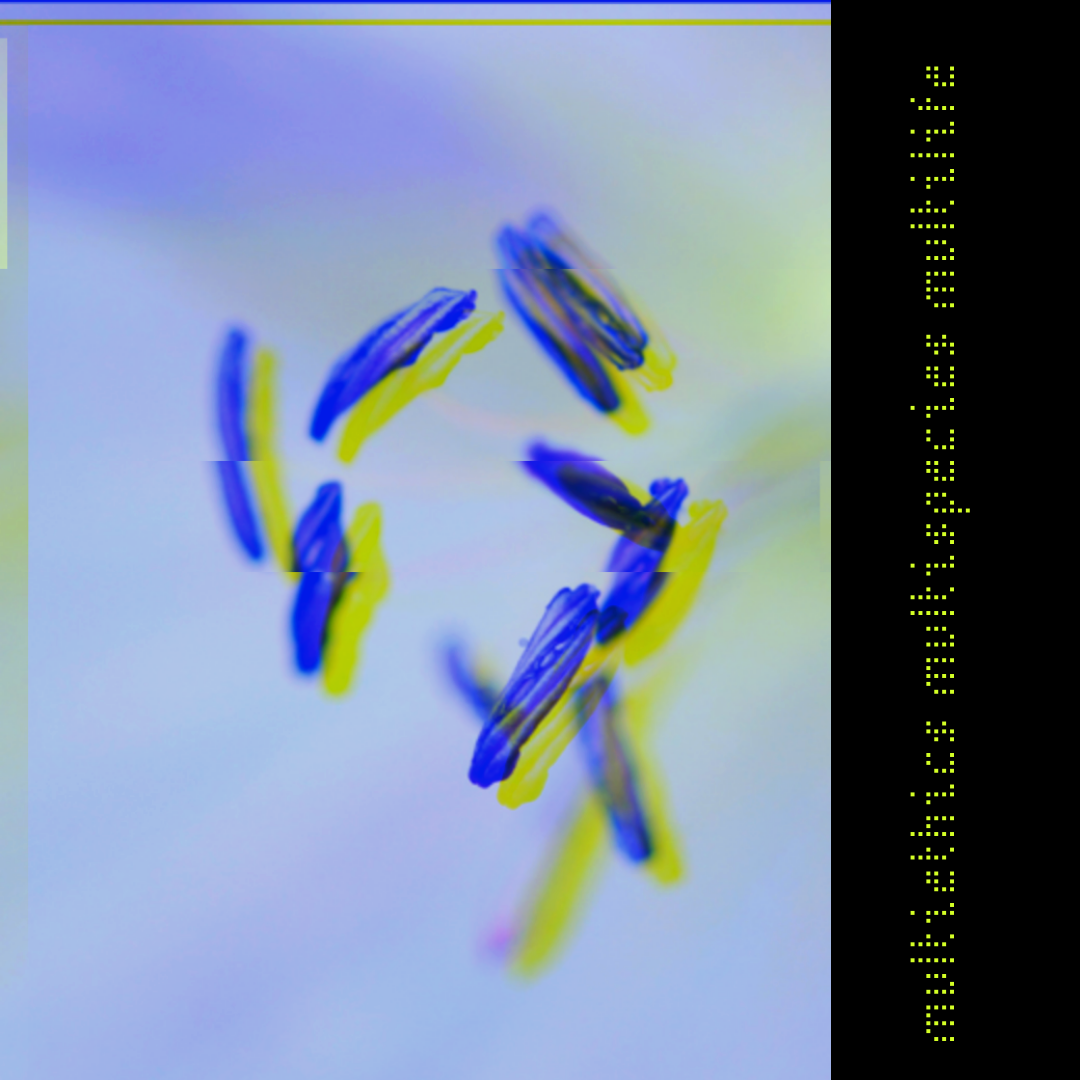
Judith Harris
Artist Statement: Talking & Listening to Plants
In Plant Human Quarterly, the poets I read celebrate the natural world by writing about it...through emotion and thought, and they find, among the many objects of this world, a way to converse, a way to body forth their feelings by paying attention to the natural world—and feel themselves beloved on this earth. The lilies are my memory, and still live within me, and are therefore elegiac, although memory is where art leaves off—and surprise happens. There's the pleasure of the thing itself, and somehow that works against the sadness that inspired this poem. The lilies represent that frail but obstinate will—to flower and bear fruit—within me. And through language, a belief in possibilities beyond loss is irrepressibly restored.
I also wanted to express the vulnerability of these flowers at dusk, closing our day, but opening their own, seen through the window, the window itself symbolic of self-consciousness, and looking beyond it to what the moist air must do for the lilies, heightening their scent—which is key to their own kind of language. It is not just the flower; it is the flower in its over-luxuriousness. I also wrote this poem while mourning the loss of my husband, and I found that mourning, may not be so different from nurturing. Why not nurture the nature that nurtures us, with kindness or love? If not for the moon, and the interdependence of all things in nature, the vision would be lost.
I wrote this poem for a physician, Jehan El-Bayoumi, and I was thinking of Emerson’s "The Rhedora" where, happening upon the wildflower, he reflects upon the question of beauty—whether it can exist if no sentient being is there to appreciate it, and he resolves that beauty does exist because it exists within human beings primarily, who can decipher as well as represent it in language. The moon shows the interdependence of all things, a means for exchanging the borders between the lilies and myself, so that I could imagine speaking in their voice.
Judith Harris is the author of Atonement and The Bad Secret (LSU) and Night Garden (Tiger Bark) and two critical books, Signifying Pain: Constructing and Healing the Self through Language (SUNY Press) and The Poetry of Loss: Romantic and Contemporary Elegies (Routledge Press). Poems have appeared in The Nation, The Atlantic, The New Republic, The Hudson Review, Southern Review, North American Review, The Alaska Quarterly, American Life in Poetry, The American Academy of Poets poem of the day, Poetry Foundation poem-a-day, and Verse Daily. Her articles appear in The AWP Chronicle, Harvard Review, Journal of American Psychoanalysis, North American Review, and a new article in American Imago, “Mothering Mother Nature in Dickinson’s Garden Poems".

